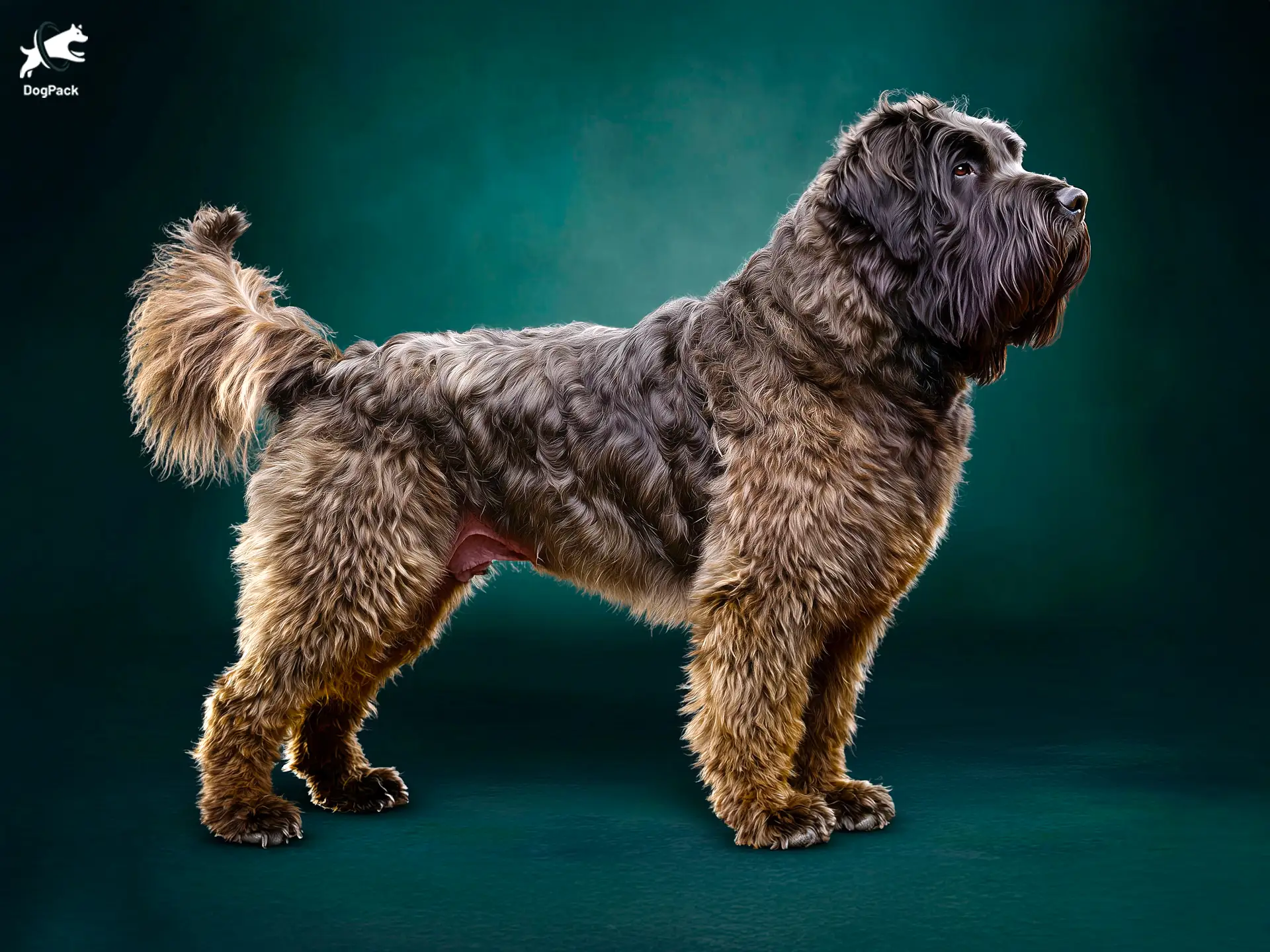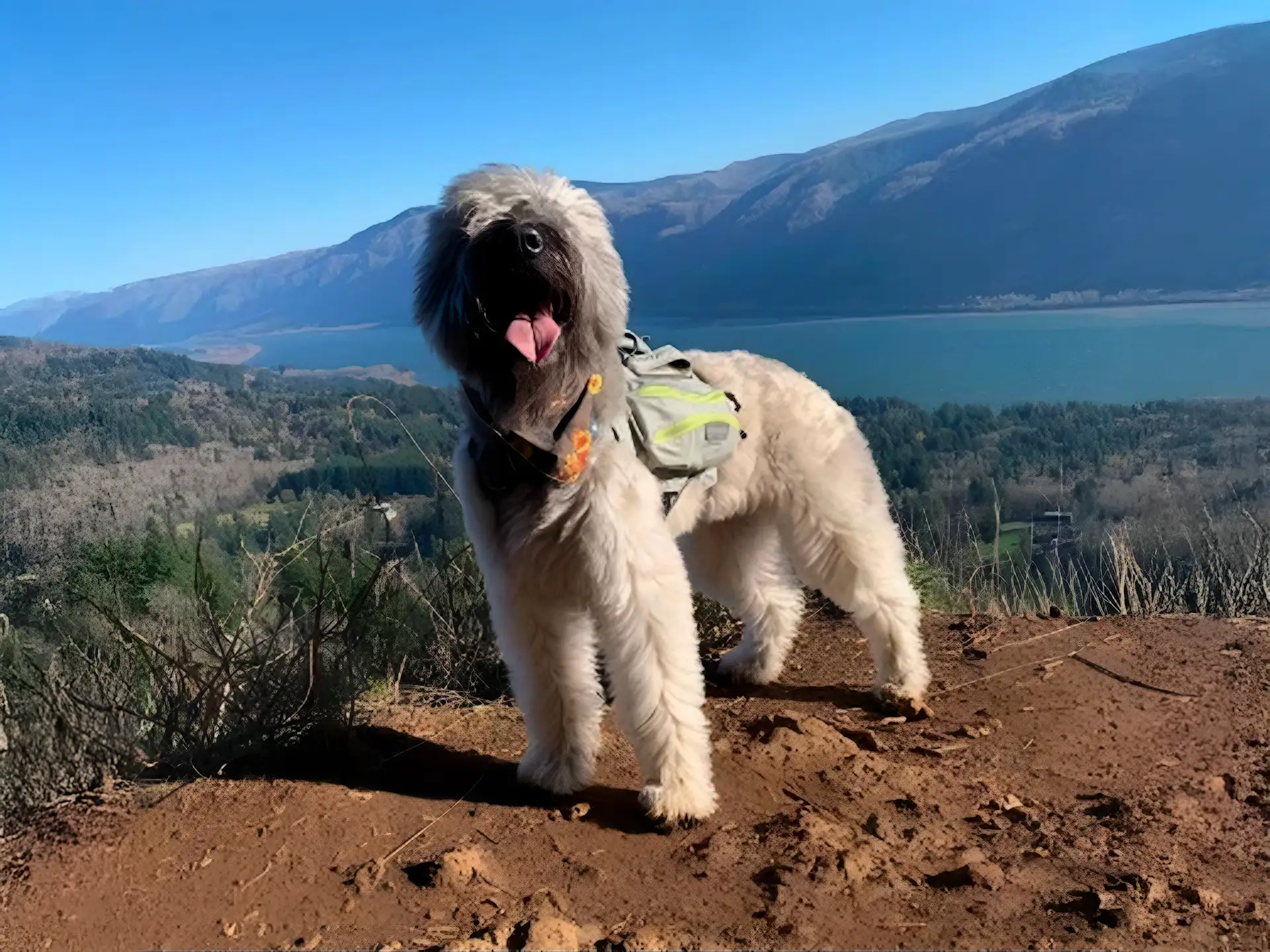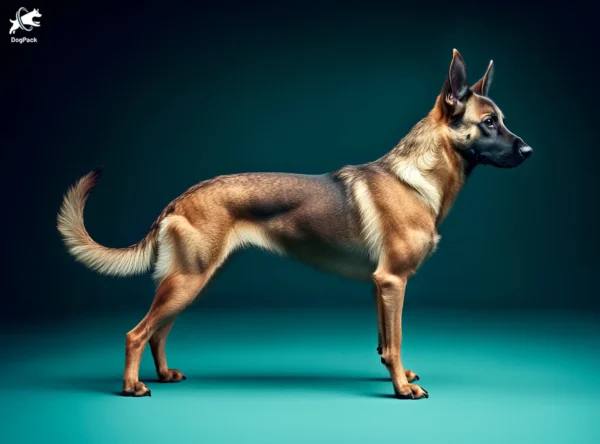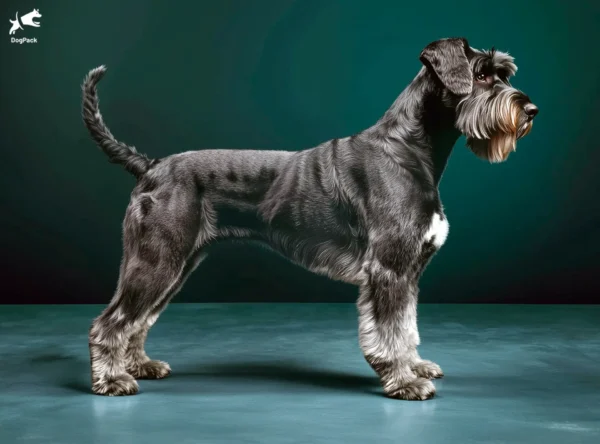Bouvier des Flandres Dog Breed Info & Overview
Looking for a devoted guardian by your side? The Bouvier des Flandres might be your perfect match. Originating from Belgian farms, this intelligent and strong breed is known for its unwavering loyalty. With a rugged look and a heart of gold, the Bouvier des Flandres offers both protection and affection to your family.
Characteristics
Pictures
Breed History
The Bouvier des Flandres originated in the farmlands of Flanders, a region spanning parts of Belgium and France. Farmers needed a versatile dog that could herd cattle, pull carts, and guard the homestead. This breed was developed to meet those demands, becoming an indispensable helper on rural farms.
During World War I, the breed nearly faced extinction as battlefields ravaged their homeland. However, dedicated breeders and military forces recognized the dog’s value and worked to preserve it. They served bravely as messenger and ambulance dogs, showcasing their intelligence and resilience.
Post-war, the breed’s numbers slowly recovered, and the Bouvier des Flandres gained recognition beyond its native land. In 1929, the American Kennel Club officially recognized the breed. Today, they are cherished not just for their working abilities but also as loyal companions and protectors in homes around the world.
Temperament, Personality
The Bouvier des Flandres is known for its calm yet confident demeanor. They are deeply loyal to their families and possess a protective instinct that makes them excellent watchdogs. Intelligent and thoughtful, they are often described as dignified dogs that don’t act impulsively.
With proper socialization, Bouviers can be great with children, especially older ones who understand how to interact respectfully with large dogs. Their patient nature allows them to be gentle companions, but due to their size and strength, supervision around young kids is advised. They can coexist peacefully with other pets if introduced appropriately.
When it comes to strangers, the Bouvier des Flandres may be reserved or aloof. Their protective instincts mean they are naturally suspicious of unfamiliar people, making early socialization crucial. Exposing them to various people, places, and situations helps ensure they grow into well-rounded adults.
Physical Characteristics
The Bouvier des Flandres is a robust and powerfully built dog, exhibiting strength without heaviness. Males typically stand between 24 to 28 inches tall, while females range from 23 to 26 inches. They have a sturdy frame with well-developed muscles, contributing to their formidable presence.
One of the breed’s most distinctive features is its thick, double coat. The outer coat is rough and shaggy, while the undercoat is dense, providing protection against harsh weather. Their coat colors range from fawn to black, often with brindle or peppering patterns. The characteristic beard and mustache give them a rugged and somewhat stern appearance.
The Bouvier des Flandres has a large, expressive head with dark, alert eyes that convey intelligence. Their ears are often cropped in countries where the practice is legal, though natural ears are becoming more common. Their tails may also be docked, but this varies by region and personal preference.
Health Issues
While generally a healthy breed, the Bouvier des Flandres is prone to certain genetic health issues. Hip dysplasia is a common concern due to their size, potentially leading to mobility problems as they age. Regular vet check-ups and maintaining a healthy weight can help mitigate this risk.
Eye conditions such as cataracts and glaucoma have been observed in this breed. Responsible breeders often conduct eye exams on their breeding stock to reduce the incidence of hereditary eye diseases. Monitoring your dog’s eye health and seeking veterinary advice if any changes are noticed is essential.
Another health issue to be aware of is gastric torsion, or bloat, a life-threatening condition common in deep-chested breeds like the Bouvier des Flandres. Feeding smaller, frequent meals and avoiding vigorous exercise immediately after eating can help prevent this condition. Always consult your veterinarian for personalized health advice.
Grooming Needs
The Bouvier des Flandres has a high-maintenance coat that requires regular grooming to keep it in good condition. Their thick, double coat is prone to matting if not properly cared for. A thorough brushing at least two to three times a week is recommended to remove dead hair and prevent tangles.
Professional grooming every six to eight weeks can help manage their coat and keep it looking its best. Trimming around the ears, paws, and sanitary areas is often necessary. The breed’s signature beard and mustache should be cleaned regularly to prevent food and debris buildup.
Bathing should be done as needed, typically every few months unless they get particularly dirty. Using a dog-specific shampoo helps maintain the natural oils in their coat. Regular ear checks, teeth brushing, and nail trimming are also essential parts of the Bouvier des Flandres’ grooming routine.
Exercise Requirements
An energetic and intelligent breed, the Bouvier des Flandres requires ample daily exercise to stay healthy and content. Aim for at least one to two hours of physical activity each day. This can include brisk walks, runs, or play sessions in a securely fenced area.
Mental stimulation is just as important as physical exercise for this breed. Activities like obedience training, agility courses, or herding trials can keep their minds sharp. They excel in tasks that challenge both their body and mind, making them ideal candidates for various dog sports.
Due to their working heritage, the Bouvier des Flandres enjoys having a job to do. Engaging them in tasks like carrying a backpack during walks or participating in search and rescue can be highly rewarding. Providing a mix of activities helps prevent boredom and unwanted behaviors.
Training Tips
The Bouvier des Flandres is intelligent and eager to please, which can make training a rewarding experience. However, they also have an independent streak, so consistent and positive reinforcement methods work best. Harsh training techniques should be avoided, as they can lead to resistance or stubbornness.
Early socialization is crucial for this breed. Exposing them to different people, environments, and other animals helps develop a well-adjusted adult. Puppy training classes can provide a structured environment for learning basic commands and proper social behavior.
Given their protective instincts, it’s important to teach the Bouvier des Flandres appropriate responses to strangers and unfamiliar situations. Focus on obedience training that reinforces your leadership while encouraging their natural tendencies in a controlled manner. Patience and persistence are key to successful training with this breed.
Nutrition, Diet
Feeding the Bouvier des Flandres requires careful attention to ensure they receive balanced nutrition suited to their size and activity level. A high-quality dog food formulated for large breeds is recommended. This helps support their joints and overall health.
Portion control is essential to prevent obesity, which can exacerbate joint issues like hip dysplasia. Adult Bouviers typically consume between 3 to 5 cups of dry kibble per day, divided into two meals. Always adjust the amount based on your dog’s age, weight, and activity level, consulting your veterinarian for personalized advice.
Some Bouviers may benefit from diets that include glucosamine and chondroitin to support joint health. Omega-3 fatty acids can also promote a healthy coat and skin. Avoid feeding immediately before or after vigorous exercise to reduce the risk of bloat. Fresh water should always be available.
Adoption, Breeders
If you’re considering adding a Bouvier des Flandres to your family, it’s important to find a reputable breeder or consider adoption. Responsible breeders prioritize the health and temperament of their dogs, providing health clearances and proper socialization.
Visiting the breeder’s facility allows you to meet the puppies and their parents, giving insight into the dogs’ living conditions and behavior. Ask about health testing for common genetic issues like hip dysplasia and eye conditions. A trustworthy breeder will be open to questions and provide ongoing support.
Adoption is another excellent option. Organizations like the American Bouvier Rescue League specialize in rehoming Bouviers in need of a loving home. They can help match you with a dog that fits your lifestyle. Additionally, the American Kennel Club provides resources to find reputable breeders and learn more about the breed.
Family Pet?
The Bouvier des Flandres can make a wonderful family pet for those who understand the breed’s needs. Their loyalty and protective nature mean they form strong bonds with family members. They thrive in homes where they are included as part of the family activities.
They are generally good with children, especially if raised with them. However, due to their large size and strength, supervision is recommended around smaller kids to prevent accidental knocks or bumps. Teaching both the dog and children how to interact respectfully is important.
With other pets, early socialization plays a key role. The Bouvier des Flandres can get along with other dogs and even cats if introduced properly. Their herding instincts might cause them to try and herd smaller animals, so monitoring interactions is advisable.
Right For You?
Before bringing a Bouvier des Flandres into your home, consider whether you can meet their physical and mental needs. They require regular exercise, mental stimulation, and consistent training. Active individuals or families who enjoy outdoor activities may find them an excellent companion.
Their protective nature makes them great guardians, but it also means they need proper socialization to prevent over-guarding behaviors. If you have frequent visitors or live in a bustling neighborhood, early training is essential to ensure they respond appropriately.
Space is another consideration. While they can adapt to various living situations, a home with a securely fenced yard is ideal. Apartment living may not provide enough room for them to move comfortably. If you’re prepared to invest time and energy, the Bouvier des Flandres can be a loyal and loving addition to your family.
Conclusion
In summary, the Bouvier des Flandres is a loyal, intelligent, and protective breed that thrives with active owners who can provide consistent training and ample exercise. Their strong work ethic and affectionate nature make them both capable guardians and loving family members. If you’re looking for a devoted companion with a noble presence and are ready to meet their needs, the Bouvier des Flandres might just be the perfect match for you.
FAQs
-
Is the Bouvier des Flandres good with other dogs?
The Bouvier des Flandres can get along well with other dogs if properly socialized from a young age. Early exposure to different animals helps ensure they develop friendly relationships and reduces territorial behaviors.
-
How much does it cost to own a Bouvier des Flandres?
Owning a Bouvier des Flandres involves costs like purchase price or adoption fees, food, grooming, veterinary care, and training. Initial expenses can range from $1,500 to $2,500, with ongoing annual costs for care and maintenance.
-
Do Bouvier des Flandres shed a lot?
The Bouvier des Flandres has a double coat that sheds moderately throughout the year. Regular grooming helps manage shedding and keeps their coat healthy. They’re not considered a heavy-shedding breed compared to some others.
-
Are Bouvier des Flandres suitable for apartment living?
Due to their large size and energy levels, the Bouvier des Flandres is generally not ideal for apartment living. They thrive best in homes with ample space and access to a securely fenced yard where they can exercise freely.
-
What kind of work were Bouvier des Flandres originally bred for?
The Bouvier des Flandres was originally bred for farm work in Flanders, including herding cattle, pulling carts, and guarding property. Their versatility and strength made them valuable working dogs in agricultural settings.
Breed Ratings
The Bouvier des Flandres is highly intelligent and quick to learn, making them responsive to training when consistent methods are used.
While they enjoy playtime, especially with their family, they have a more serious nature and may not be overly playful.
This breed has a high energy level and requires daily exercise to stay happy and healthy, including both physical and mental stimulation.
Moderate shedding occurs year-round. Regular grooming helps manage shedding and keeps their thick double coat in good condition.
The Bouvier des Flandres has a low to moderate prey drive, but early socialization helps ensure they coexist peacefully with smaller animals.
Their dense, shaggy coat requires regular brushing and professional grooming, making them a higher-maintenance breed in terms of grooming needs.
Intelligent and eager to please, they respond well to positive reinforcement training techniques and consistent leadership.
They prefer the company of their family and may become anxious or develop unwanted behaviors if left alone for extended periods.
They are not excessive barkers but will alert you to strangers or unusual activities, reflecting their protective nature.
The Bouvier des Flandres is not known for heavy drooling, but some individuals may drool slightly, especially after eating or drinking.
With proper socialization, they can be friendly toward other dogs, but their protective instincts may cause wariness with unfamiliar canines.
Generally healthy with a few breed-specific health concerns. Regular veterinary care and a proper diet contribute to their overall well-being.














